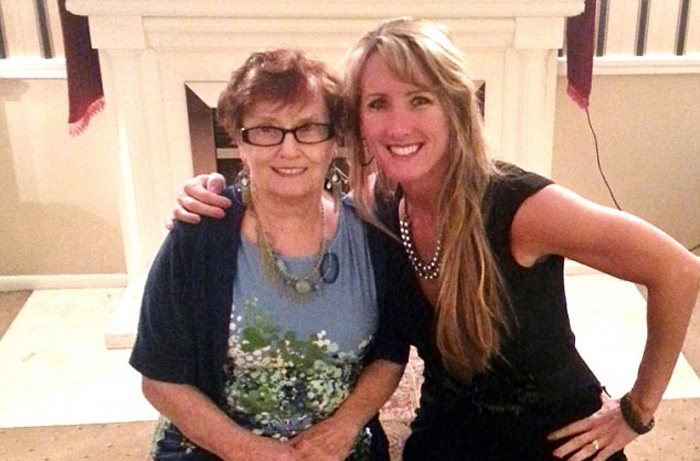Apologia
Abortion and the Hard Cases

Thanks to Prime Minister Justin Trudeau and his kerfuffle with the Summer Jobs Program, abortion has been in the news lately. Whether the SJP and its “values test” are amended or not (they weren’t), it’s important that public discourse about abortion be respectful, thoughtful, and well informed.
Perhaps the following objections and replies concerning the hard cases will be helpful.
1. Objection: Rape, incest, and protection of life or health of mother justify the current abortion practice.
Reply: No, arguments that abortions are necessary for these special situations are legitimate (if at all) only for those special situations. In my research I have discovered that these special situations account for less than 5% of the total. To justify the total on the basis of 5% makes the mistake in reasoning called the fallacy of hasty generalization.
2. Objection: Rape justifies abortion.
Reply: Rape is wrong, definitely, for sure, 100%. But, as terrible as rape is – which it is! – some perspective is needed. Consider the following points.
Abortions due to rape account for only a small number (less than 5%) of total abortions. Thus, to justify the general abortion situation because of these few terrible cases is (again) to commit the fallacy of hasty generalization.
Also, the mother has been victimized. So the mother needs care. But keep in mind that abortion does not undo the trauma of rape. Keep in mind, too, that abortion can be traumatic as well.
Also, abortion may be related to subsequent health problems. According to the documentary Hush: A Liberating Conversation about Abortion and Women’s Health (2016), abortion risks include breast cancer, premature birth (of subsequent children), and psychological problems. By seeing abortion as a solution to rape, we might victimize a woman (a second time).
Also, we should remember that to kill by abortion the innocent human being conceived by the crime of rape is like killing an innocent bystander at the scene of a crime – a crime perpetrated by the bystander’s father. Surely, the father deserves (severe) punishment, not the child.
Moreover, the child’s voice should be heard. Significantly, there are people who have been conceived by rape and are now speaking out on behalf of those who cannot. Enter attorney Rebecca Kiessling and company – people conceived via rape. Kiessling writes: “Have you ever considered how really insulting it is to say to someone, ‘I think your mother should have been able to abort you.’? It’s like saying, ‘If I had my way, you’d be dead right now.'”
Yes, rape is wrong, definitely, for sure, 100%. But let’s be sure we don’t succumb to the two-wrongs-make-a-right fallacy.
3. Objection: The life-of-mother-versus-life-of-child situation justifies abortion.
Reply: Yes, possibly, as self-defence (though some or perhaps many mothers would sacrifice their lives for the life for their child).
Significantly, however, the life-of-mother-versus-life-of-child situation is rare in North America (source: Dr. C. Everett Koop, “Deception-On-Demand,” Moody Monthly, May 1980; also see here).
This means that justifying general abortion situation on basis of small percentage is (again) a hasty generalization.
Conclusion: Rape, incest, threats to the life or health of the mother are tough cases that fuel many emotional arguments for abortion. Nevertheless, it’s important to remember that these tough cases account for a very small percentage of the total abortions.
Fordham University ethicist Charles Camosy, in his book Beyond the Abortion Wars (2015), says the tough cases amount to 2 percent of the total cases. As I’ve indicated above, others report that it might be 5 percent. Whether 2 or 5 percent, the fact remains that it’s a small percentage.
Significantly, this means 95-98% of abortion cases are due to social problems.
But, surely, social problems require social solutions – not the killing of children.
Canada should have a law that protects unborn children AND addresses the social problems that pressure women to abort.
Past APOLOGIA columns concerning abortion, for additional reading and study:
- Reproductive freedom versus abortion, March 8, 2018
- Aborting Trudeau’s (other) abortion argument, January 30, 2018
- Canada Summer Jobs kerfuffle, January 18, 2018
- About my abortion columns, October 26, 2017
- Resisting the Culture of Death, October 11, 2017
- Ideological investigative journalism, February 16, 2017
- Abortion, February 2, 2017
- About outlawing abortions, November 24, 2016
- Untangling abortion arguments, November 9, 2016
- We need an abortion law, October 12, 2016
- Beyond the abortion wars, August 8, 2016
- We need an abortion law, September 3, 2015
- We need an abortion law, May 29, 2014
- Aborting the least of these, May 15, 2014
- Euphemisms: The good, the bad, and the ugly, March 28, 2013
- Reflections on Motions 312 and 408, October 4, 2012
- Is the fetus a human being?May 10, 2012
- Abortion in the news (part 2), November 9, 2011
- Abortion in the news (part 1), October 20, 2011
- On abortion, again, October 16, 2008
- Acorns and oak trees…and abortion, October 2, 2008
- Aborting an abortion argument, September 18, 2008
- Morgentaler’s abortion of logic, September 4, 2008
Past Winnipeg Sun columns concerning abortion, for additional reading and study:
- Perspective needed on abortion, March 10, 2018
- Social solutions should never include killing, February 14, 2017
- About outlawing abortions, January 7, 2017
For support for crisis pregnancy:
Many thanks to daughter-in-law Jessica van der Breggen for suggesting this topic.
Hendrik van der Breggen, PhD, is a retired philosophy professor who lives in Steinbach, Manitoba.




